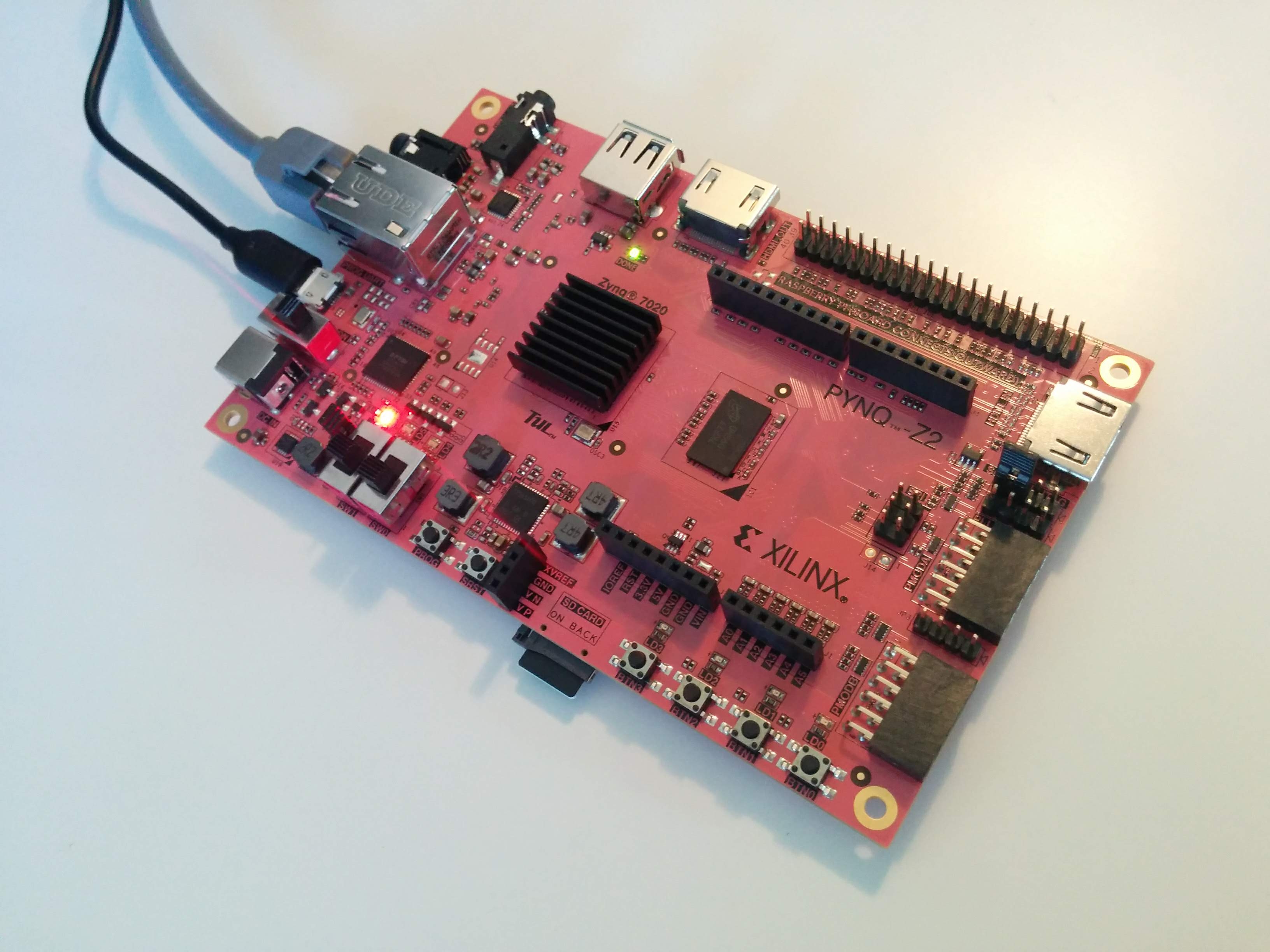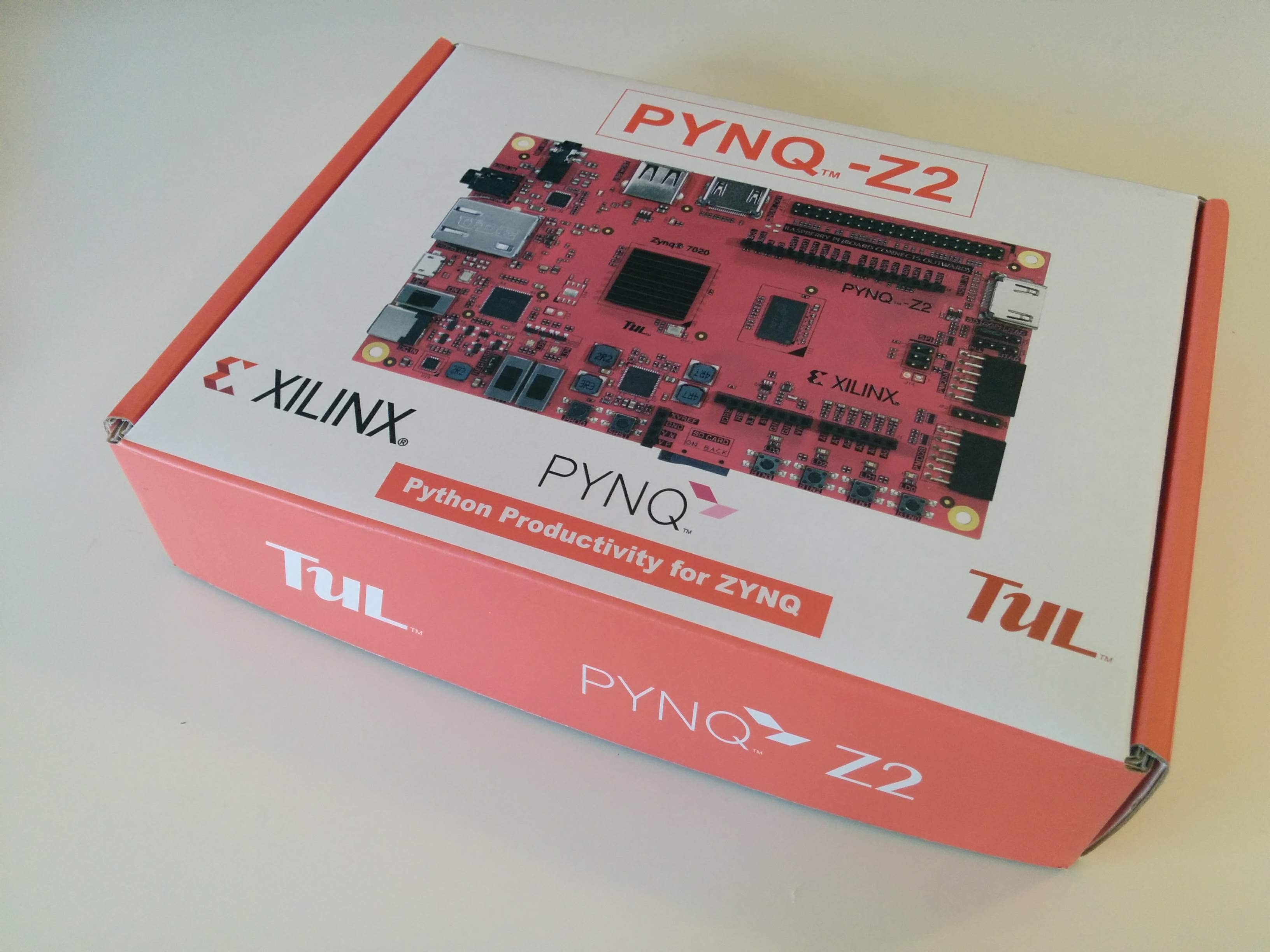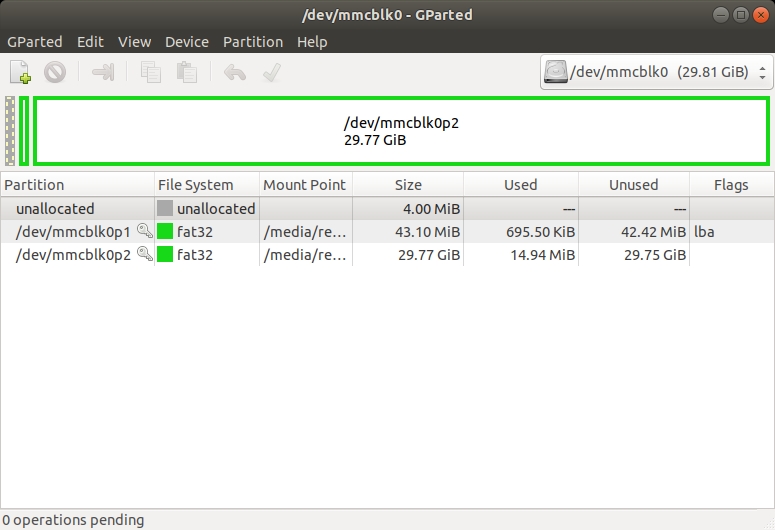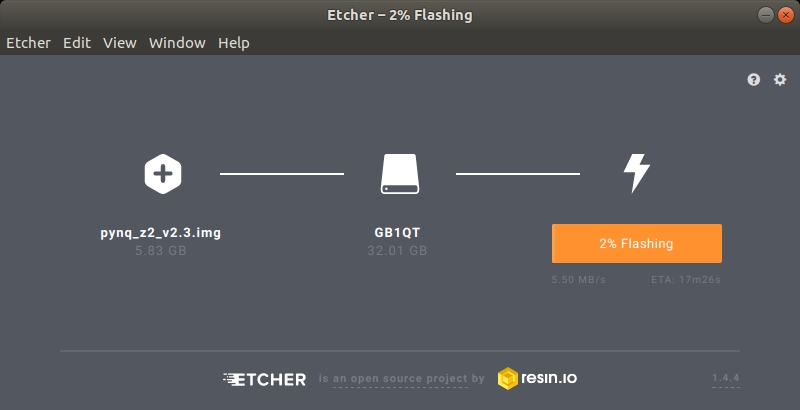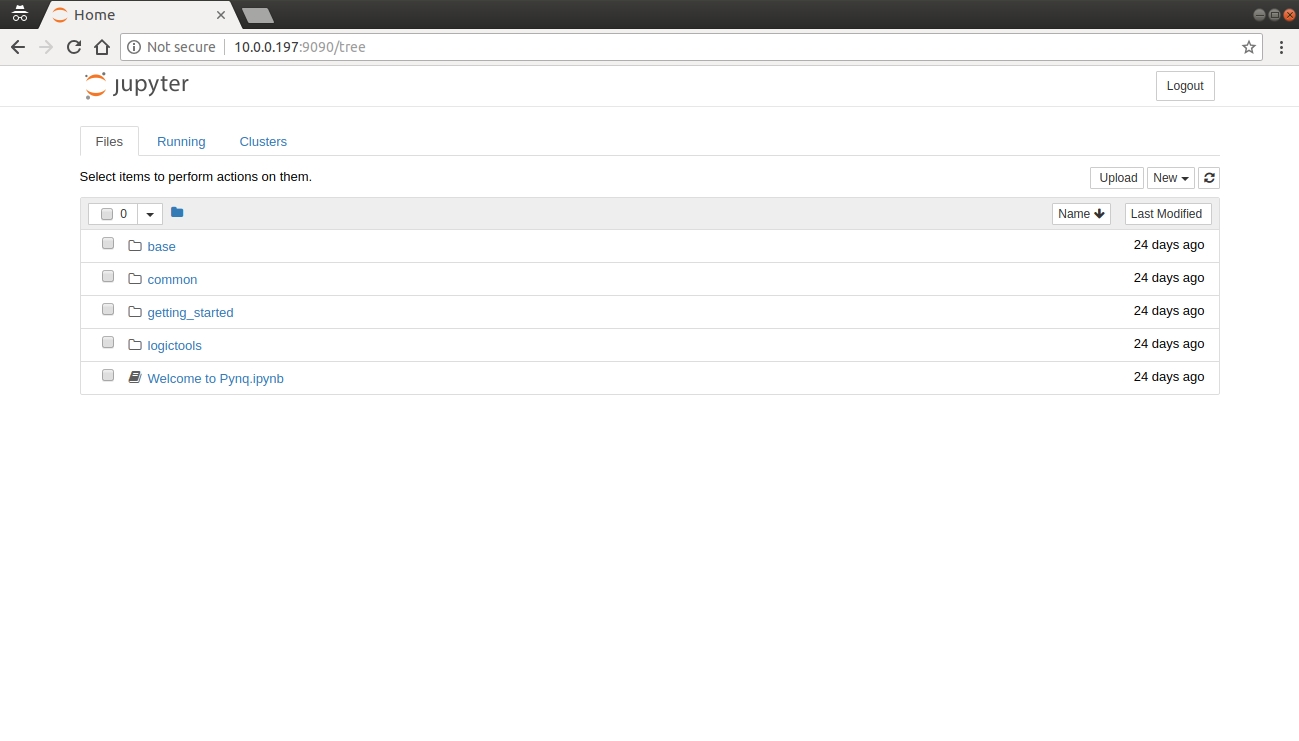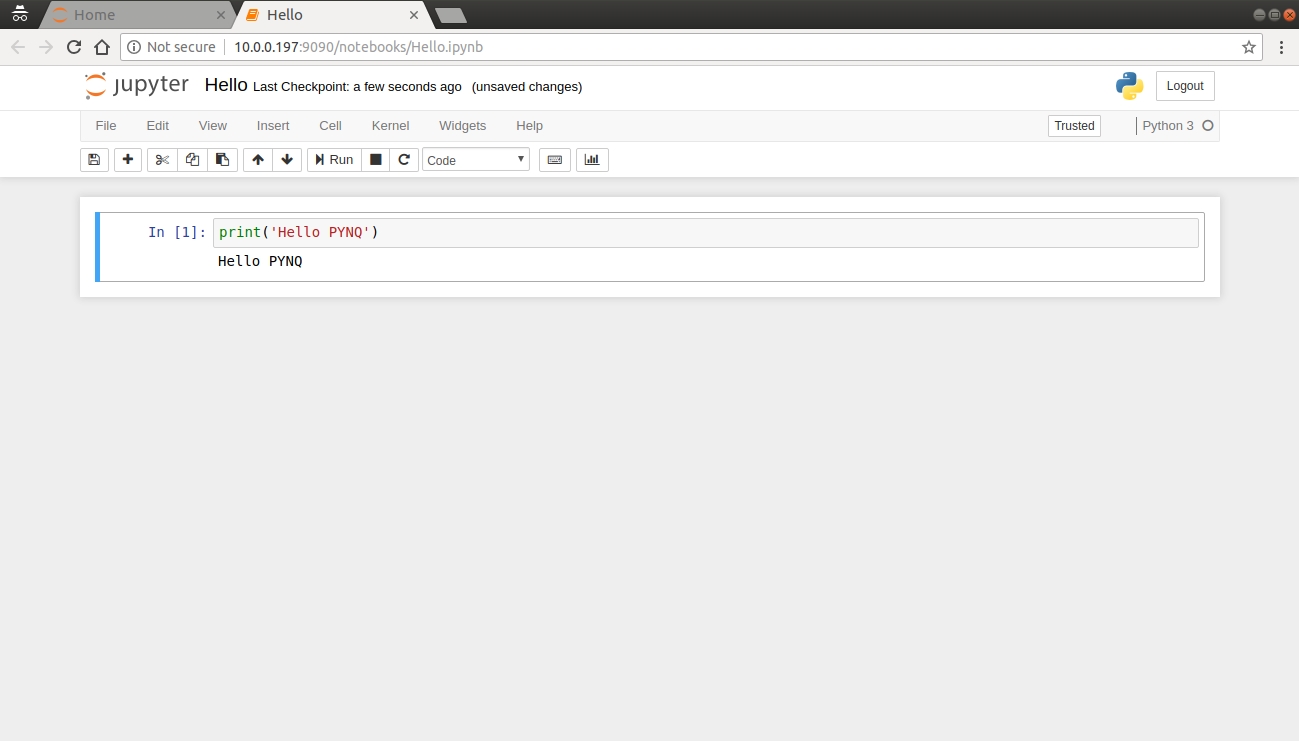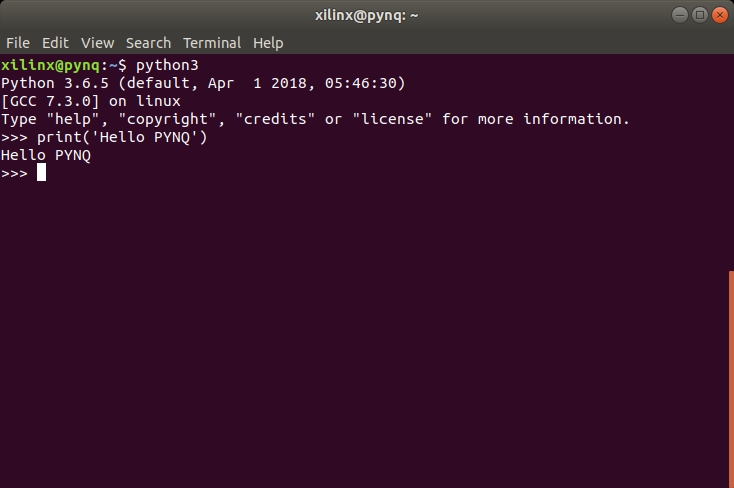Environment
- Host PC: Ubuntu 18.04
- Device: PYNQ Z2
Why I bought PYNQ?
I already bought a ZYBO-Z7-10 and learned how to make IP on a FPGA device. ZYBO is good device for learning FPGA but PYNQ is easier than it to do prototyping because we can use powerful python tool such as Jupyter Notebook.
Setup
1. Get latest PYNQ image
PYNQ – Python productivity for Zynq – Board
http://www.pynq.io/board
Clean SD card
$ sudo gparted- Partition > Unmount
- Format > fat to 32
- Apply all
Create SD card using “Etcher”.
2. Board Pin Setting
PYNQ-Z2 Setup Guide — Python productivity for Zynq (Pynq) v1.0
https://pynq.readthedocs.io/en/latest/getting_started/pynq_z2_setup.html#board-setup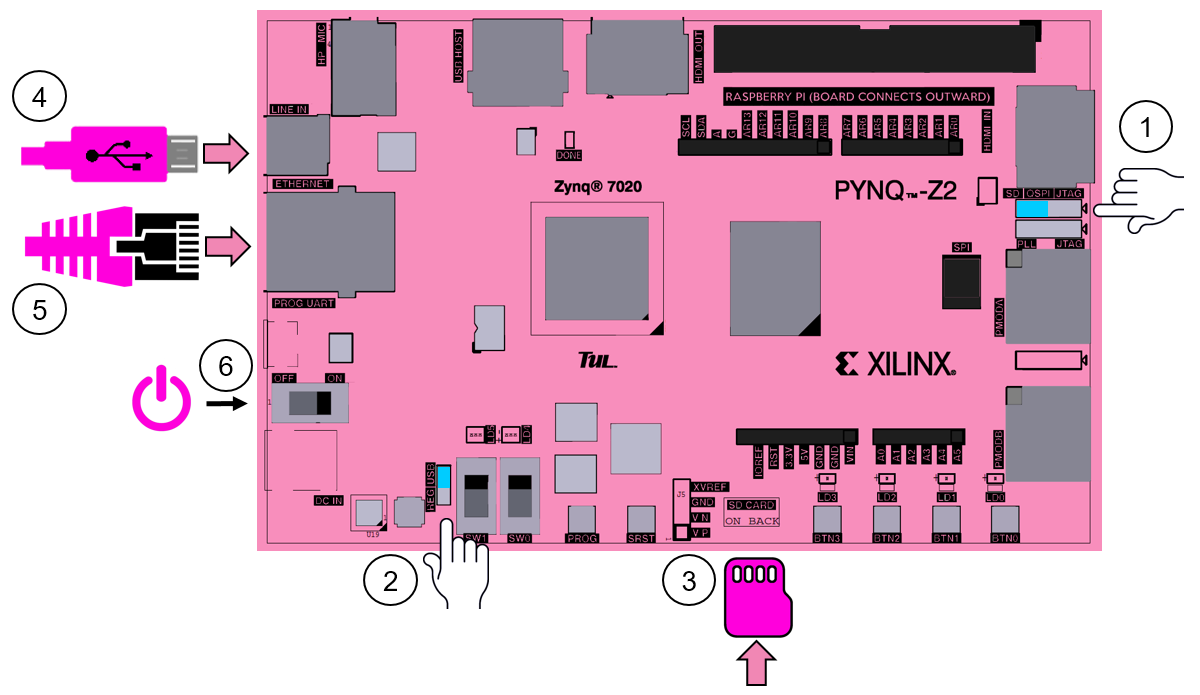
3. Run Jupyter Notebook
A. Connect directly to a computer (Static IP)
- Connect the board to your computer’s Ethernet port
- Browse to http://192.168.2.99:9090/login.
B. Connect to a Router/Network (DHCP)
- Connect the Ethernet port on your board to a router/switch
- Connect your computer to Ethernet or WiFi on the router/switch
- Find the ip address using “Fing” which is an android app.
- Access to http://x.x.x.x:9090/login.
Pass: xilinx
4. Connect to PYNQ using SSH
Connect the board to your computer’s Ethernet port
$ ssh xilinx@x.x.x.x
python3
print(‘Hello PYNQ’)
exit